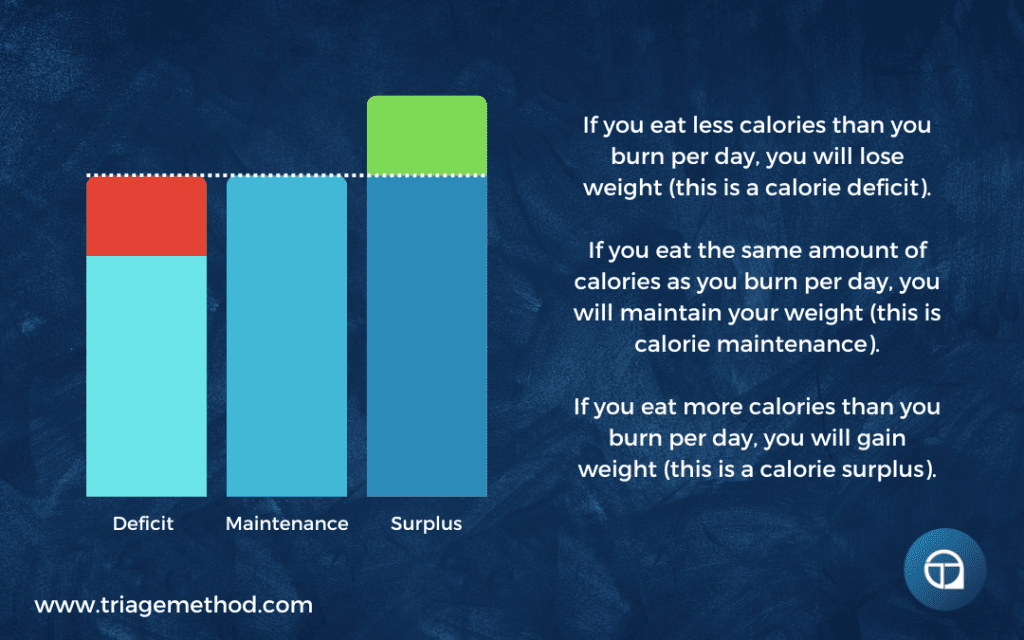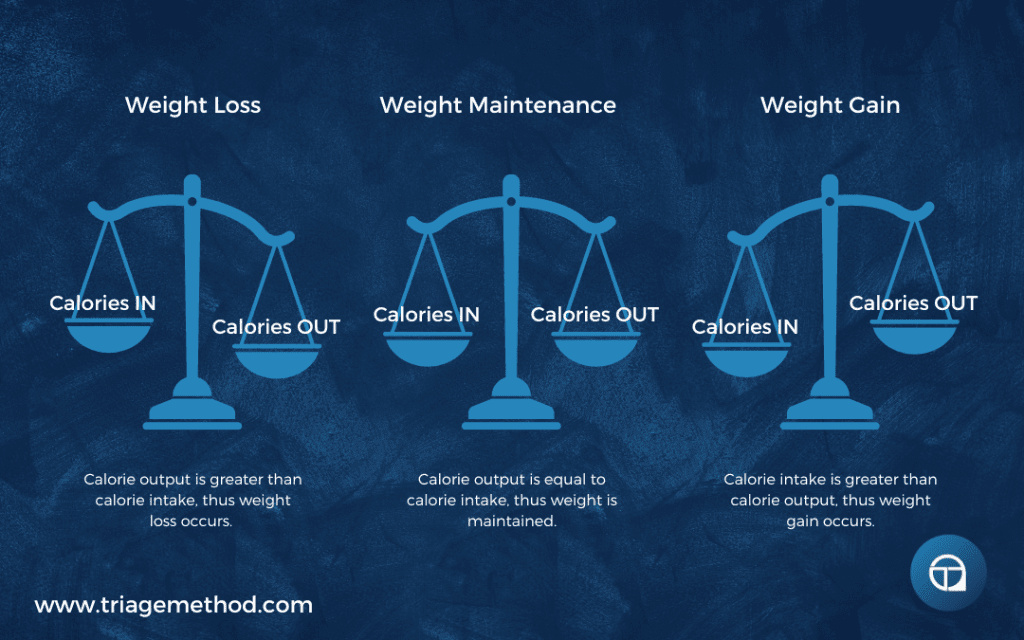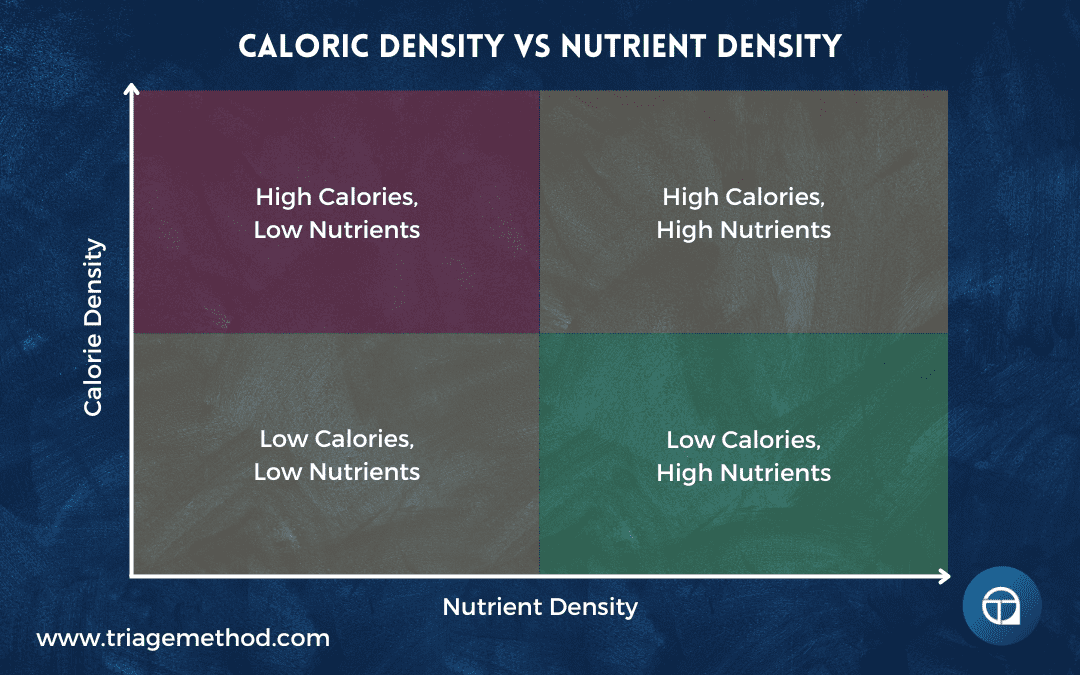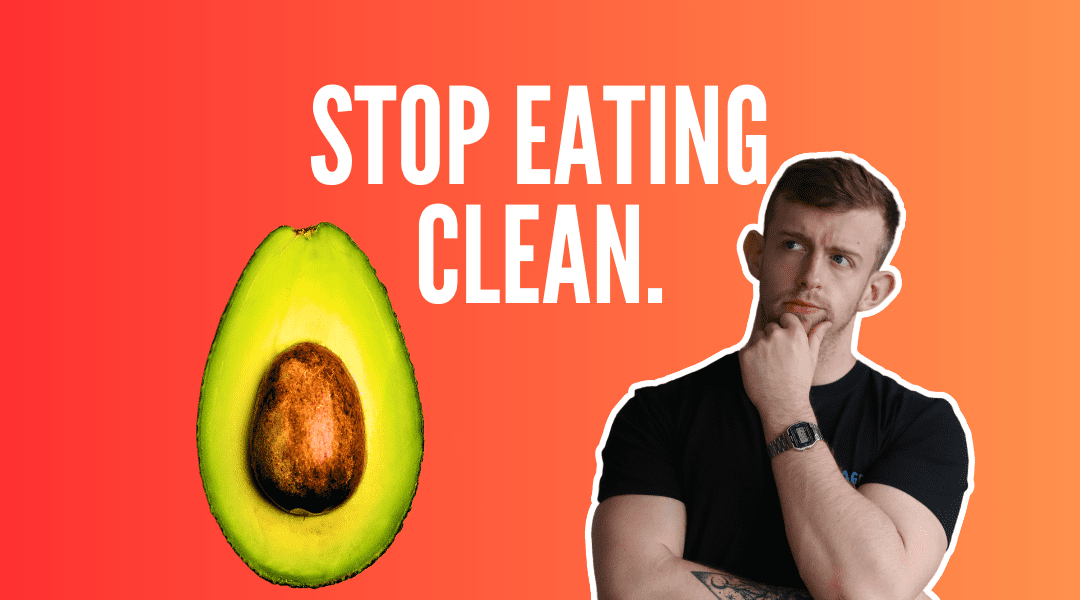You may be wondering why clean eating is stopping you from losing fat, when the vast majority of health and fitness influencers are telling you that you need to eat a healthy diet to lose fat. How could eating healthy food possibly lead you to struggle with fat loss? Surely it is as simple as eating healthy foods and the fat just melts off you?
That is what a lot of people do actually think. We have clients who come in to work with us in our online coaching practice all the time who have been struggling with fat loss. This is despite them feeling like they are doing everything right with the diet by eating healthy foods. So in this article, we are going to discuss how clean eating could be holding you back from your fat loss goals.
Why Clean Eating Is Stopping You From Losing Fat
Before we get stuck into discussing this topic, we do actually have to briefly discuss what “clean eating” is.
There are many definitions of clean eating and it may mean slightly different things to different people. However, in general, clean eating is a dietary approach that emphasises consuming whole, unprocessed foods and reducing the intake of processed, refined foods in the diet. It generally focuses on eating fruits, vegetables, whole grains, lean proteins, and healthy fats, while avoiding additives, preservatives, and artificial ingredients. The goal is to eat foods in their most natural, unaltered state for better health and wellness.
Now, this sounds like a pretty sound dietary approach. It is similar to the way we generally recommend our online coaching clients eat, the type of food selection we teach on our Nutrition Coaching Certificate and what we discuss in our comprehensive diet set up article.
So how is clean eating preventing you from achieving your fat loss goals?
How Clean Eating Is Stopping You From Losing Fat
Well, the main reason that clean eating may be preventing you from losing fat is that you are not accounting for calories. So while you are eating foods that are generally considered to be healthy foods, you may still be overconsuming calories, and thus you are not going to be losing weight.
We have discussed calories, especially as it relates to fat loss, extensively in our article on how to set up the diet, and our article on understanding what calories are. We also even touched on the topic of calories in our article on how eating more may actually lead to better fat loss results. So if you haven’t read those articles and want a more comprehensive understanding of calories, we would recommend consulting those articles.
Calorie Balance
However, here is a brief overview of calories as it relates to fat loss:
Calorie balance refers to the relationship between the calories consumed (calories in) and the calories expended (calories out). This is generally referred to as the Calories In, Calories Out (CICO) model of metabolism, especially when we discuss it in a weight management context.

The “CICO” model states that if you consume more calories than you burn, you will gain weight, and if you consume fewer calories than you burn, you will lose weight.
Calories in come from the food and beverages we consume. Every type of food, whether it’s carbohydrates, proteins, or fats, provides a certain amount of calories.
Calories out are the calories the body expends to maintain vital functions (like breathing and circulation, known as basal metabolic rate (BMR)), to process food (the thermic effect of food, (TEF)), and through physical activity (both non-exercise activity thermogenesis (NEAT) and exercise activity thermogenesis (EAT) contribute here).
The balance between calories in and calories out is what dictates whether or not you gain or lose weight.
If this balance is skewed consistently towards more calories in than out, it leads to weight gain. Conversely, if more calories are consistently expended than consumed, it results in weight loss.

Calorie Balance and Clean Eating
When it comes to fat loss, energy balance or calories in versus calories out is the most important factor. Professor Mark Haub from Kansas State University demonstrated this by losing 27 pounds in 10 weeks, and he was eating nothing but junk food like Twinkies, Oreos, and Doritos, but it was all portioned and calorie-controlled. Logically, it doesn’t make sense to be eating a diet of all junk food and still lose weight, but if the calories are controlled, it is very much possible.
Unfortunately, many people who are eating clean, don’t have a broader understanding of nutritional science and how to set up a diet correctly. So while the rules they are following around food selection are actually health-promoting rules, they don’t necessarily lead someone to consume a calorie-appropriate diet. It is actually surprisingly easy to overconsume calories even while eating foods we would generally consider to be health-promoting.
Food Selection
The following scenario is something we see very frequently when people come to us for coaching.
Someone comes to us who has been “eating clean” and while they may have gotten some initial weight loss, they have stopped losing weight with the diet and are unsure what to do next. They can’t eat any “cleaner” as they are already eating all the foods that are recommended as being healthy.
However, the reality is that you can eat a diet that is almost entirely full of unprocessed foods, and your calories can still be way too high, and thus, you’re simply not going to lose fat.
To help illustrate this, we can consider foods on a scale of calorie density and nutrient density.
Certain foods can be low in calories and high in nutrients, like non-starchy vegetables and certain fruits. Some foods can be high in calories and low in nutrients, like ultra-processed foods such as crisps, sweets, and chocolate. Some food and drink items can even be low in nutrients and low in calories, such as sugar-free jellies or diet soft drinks. Finally, there are foods that are high in nutrients and also high in calories.

Low in Calories and High in Nutrients:
These are typically whole foods that provide essential nutrients like vitamins, minerals, and fibre with relatively few calories. Examples include:
- Non-starchy vegetables and leafy greens: Spinach, lettuce, broccoli, kale, bell peppers, and tomatoes, are all high in nutrients, but relatively low in calories.
- Certain fruits: Berries, apples, oranges, and kiwi. These fruits are rich in vitamins, minerals, and antioxidants, but relatively low in calories.
- Herbs and Spices: Parsley, basil, cinnamon, and turmeric, which are nutrient-dense and add flavour with minimal calories.
High in Calories and Low in Nutrients:
These are often processed foods high in added sugars, unhealthy fats, and empty calories, offering little nutritional value. Examples include:
- Ultra-processed snack foods: Crisps, biscuits, cookies, and candy bars.
- Fast food items: Burgers, chips (fries), and pizza from fast food chains.
- Sugary beverages: Regular sodas, energy drinks, and pre-sweetened teas.
- Refined carbohydrates: White bread, pastries, and most commercially available cakes.
Low in Nutrients and Low in Calories:
These items often contain artificial sweeteners or are highly processed with minimal nutritional value. Examples include:
- Diet soft drinks: Contain artificial sweeteners and lack nutrients.
- Sugar-free jellies and candies: Often made with artificial sweeteners and lack vitamins and minerals.
- Light or diet versions of processed foods: Such as low-calorie snacks or meal replacements which are not nutrient-dense.
High in Nutrients and High in Calories:
These foods are nutrient-dense but also calorie-dense, so portion control is important. Examples include:
- Nuts and Seeds: Almonds, walnuts, chia seeds, and flaxseeds are rich in healthy fats, protein, and fibre.
- Avocados: High in healthy monounsaturated fats and rich in vitamins and minerals.
- Fatty Fish: Such as salmon and mackerel, which are high in omega-3 fatty acids.
- Some whole grains: Certain whole grain products, especially if they have been processed in some way, can actually be quite high in nutrients and calories.
- Olive oil: A healthy fat, rich in antioxidants but high in calories.
- Dried fruits: Dried fruits are generally quite nutrient-dense but also high in natural sugars and calories.
- High-fat dairy products: Such as cheese, cream and full-fat yogurt, all can contain essential nutrients like calcium and vitamin D but are also high in calories.
What tends to trip people up is the fourth category, and these are the foods that are high in nutrients and also high in calories.
These include foods like nuts, seeds, dried fruit, avocados, fatty fish, high-fat dairy, olive oil, and fruit juices. By indulging in these foods under the pretence of clean eating, while you are consuming a lot of nutrient-dense foods, you’re also consuming a lot of calories as well.
And this is the thing that’s stopping you from losing body fat.
For example, I had a client who was adding avocado and an olive oil dressing to their salad, along with this, they were also adding lots of other little things to their diet, such as chia seeds, coconut flakes and nut butter to breakfast, because they were trying to eat healthy and boost the nutrient density of their diet. While they were certainly getting a lot of nutrients in the diet, they were also consuming an excessive amount of calories for their goals.
Once we tweaked their diet so it was more calorie-appropriate for their goals, fat loss happened quite quickly.
A Real World, Whole Foods Approach
Now, does this mean you shouldn’t “eat clean”?
No, we still recommend that you eat a mostly whole foods diet, as that is going to support your fat loss efforts and your general health overall, but your calorie intake needs to be the primary concern if fat loss is the goal.
If you’re not thinking about calorie intake first, you’re putting the cart before the horse, and you’re not going to be able to get the results that you want.
We generally advocate that people try to adopt a diet that is about 80% to 90% whole foods and 10% to 20% whatever foods we like. This flexible dieting approach, combined with the awareness of calorie intake, is the key to successful fat loss, specifically in the long term. You’ll have a much better relationship with food and thus better psychological health by adopting a more neutral, flexible approach to your nutrition.
It’s important that we don’t put foods on a pedestal by naming them as good, bad, clean, or dirty. Food is food at the end of the day, with variations in calorie density and nutrient density. But the healthfulness of your diet is not measured by one meal or even within one day. It is the totality of the diet that really matters rather than specific meals or even specific foods.
This is especially important to understand, because having an excessive focus on clean eating can derail your fat loss in another way.
Binge-Restrict Cycles
It is very common for people who engage in excessive “clean eating” practices, to also develop a pretty poor relationship with food. This is generally due to the creation of incredibly restrictive rules around food, especially as it pertains to which foods are “good” or “bad”. This kind of thinking generally isn’t good long term, as it can lead to some pretty disordered thinking around food, and this can manifest in a number of ways. We often see it manifest as binge-restrict behaviours.
We discussed this a little bit in our article on how eating more can lead to better fat loss, but the basic premise is that when you have very restrictive food rules, it can be very easy to develop an all-or-nothing mentality around food. So if you find yourself in a situation where you end up deviating slightly from the food rules you have set, it is incredibly likely that you will throw in the towel, go on a binge eating rampage, and “start again Monday”.
So, while we do want to have a generally well-balanced diet, and we are big advocates of eating mostly whole foods, we don’t want to get caught in rigid food rules.
We don’t want rigid food rules, we want to build resilience. Being afraid of foods, or not being able to include them in the diet rarely leads to the best long-term results.
Why Clean Eating Is Stopping You From Losing Fat Conclusion
There you have it, you now understand why clean eating is stopping you from losing fat. The reality is that for fat loss, you need to ensure that you are eating a calorie-appropriate diet. It doesn’t matter if you eat a diet that is as clean as can be, if you don’t control for calories, fat loss is unlikely to occur. It may occur by accident, as eating minimally processed, whole foods do tend to lead to a more appropriate calorie intake, however, this isn’t always the case. You can actually consume a lot of calories in a “clean eating” diet, depending on your specific food selection.
While we didn’t touch on it in this article, clean eating can also potentially be holding you back in your muscle-building endeavours too. While this article focused on the calorie side of things, as that is the key player for fat loss, many “clean eating” diets are actually quite low in protein. Without consuming adequate protein, you simply are not going to build the level of muscle you want to build, and you are also likely not going to maintain the muscle you do have while dieting for fat loss.
Key Takeaways
The main things I want you to take away from this article and understand about “clean eating” are:
- Misunderstanding of Caloric Balance: There is a common misconception that eating healthy foods automatically leads to fat loss, without considering calorie intake. Healthy eating doesn’t guarantee fat loss. To ensure fat loss, you have to understand and manage calorie intake.
- Overconsumption of Calories in Healthy Foods: It is incredibly easy to overconsume calories even with nutrient-dense, unprocessed foods. Nutrient-rich foods can also be high in calories, leading to the unintentional overconsumption of calories.
- Rigid Dieting and Psychological Impact: Strict adherence to clean eating can foster a problematic relationship with food, including binge-restrict cycles.
- Lack of Focus on Macronutrients: Many “clean eating” diets are actually quite low in protein, which is crucial for muscle building and maintenance during fat loss.
So, while there are many benefits to eating a diet that is based around eating minimally processed, whole foods, you do have to set your diet up correctly from a quantitative perspective, as well as a qualitative perspective. If you really don’t know how to do this, then I would recommend reading our comprehensive diet set up article and potentially also using one of our diet set up calculators (the ultimate diet set up calculator would be a good one if you already know how many calories you should be consuming, alternatively our calorie and macronutrient calculator may be more beneficial if you don’t know how many calories you should be consuming for your specific goals).
Food Quality and Food Quantity
In conclusion, understanding the nuances of clean eating and nutrition more broadly is essential for effective fat loss. While a diet rich in whole foods is beneficial, it’s crucial to balance your calorie intake for successful long-term weight management. Remember, effective fat loss isn’t just about the quality of food, but also the quantity. Integrating a flexible dieting approach with a focus on calorie control can lead to sustainable weight loss and improved overall health. You should still focus on incorporating nutrient-dense foods, but you do need to be mindful of calorie intake. By combining a generally minimally processed, whole foods diet, with an understanding of calories and a more flexible approach to your food selection, you’ll enjoy a healthier relationship with food, avoid the pitfalls of restrictive diets, and find fat loss much easier, and more sustainable.
How We Can Help You
If this content is something that you resonate with, or if you want to get your health and fitness questions answered and a comprehensive plan of action put in place to help you, then we might be able to help you on a one-to-one basis through our online coaching services. With coaching, we can look at your overall diet and help you come up with a comprehensive, science-backed plan of action to help you get the results you are looking for.
We also teach people to become nutrition coaches on our nutrition coaching certification course, if you are a coach who wants to upskill or you are interested in learning how to actually coach someone to better nutrition. If you just want to learn more about all things health and fitness, then feel free to explore our free content and subscribe to our email newsletter. If you prefer visual content, then subscribe to our YouTube channel, X and Instagram.
References and Further Reading
Strasser B, Spreitzer A, Haber P. Fat loss depends on energy deficit only, independently of the method for weight loss. Ann Nutr Metab. 2007;51(5):428-432. doi:10.1159/000111162 https://pubmed.ncbi.nlm.nih.gov/18025815/
Kim JY. Optimal Diet Strategies for Weight Loss and Weight Loss Maintenance. J Obes Metab Syndr. 2021;30(1):20-31. doi:10.7570/jomes20065 https://www.ncbi.nlm.nih.gov/pmc/articles/PMC8017325/
Howell S, Kones R. “Calories in, calories out” and macronutrient intake: the hope, hype, and science of calories. Am J Physiol Endocrinol Metab. 2017;313(5):E608-E612. doi:10.1152/ajpendo.00156.2017 https://pubmed.ncbi.nlm.nih.gov/28765272/
Hall KD, Farooqi IS, Friedman JM, et al. The energy balance model of obesity: beyond calories in, calories out. Am J Clin Nutr. 2022;115(5):1243-1254. doi:10.1093/ajcn/nqac031 https://www.ncbi.nlm.nih.gov/pmc/articles/PMC9071483/
Koliaki C, Spinos T, Spinou Μ, Brinia ΜE, Mitsopoulou D, Katsilambros N. Defining the Optimal Dietary Approach for Safe, Effective and Sustainable Weight Loss in Overweight and Obese Adults. Healthcare (Basel). 2018;6(3):73. Published 2018 Jun 28. doi:10.3390/healthcare6030073 https://www.ncbi.nlm.nih.gov/pmc/articles/PMC6163457/
Hall KD, Bemis T, Brychta R, et al. Calorie for Calorie, Dietary Fat Restriction Results in More Body Fat Loss than Carbohydrate Restriction in People with Obesity. Cell Metab. 2015;22(3):427-436. doi:10.1016/j.cmet.2015.07.021 https://pubmed.ncbi.nlm.nih.gov/26278052/

